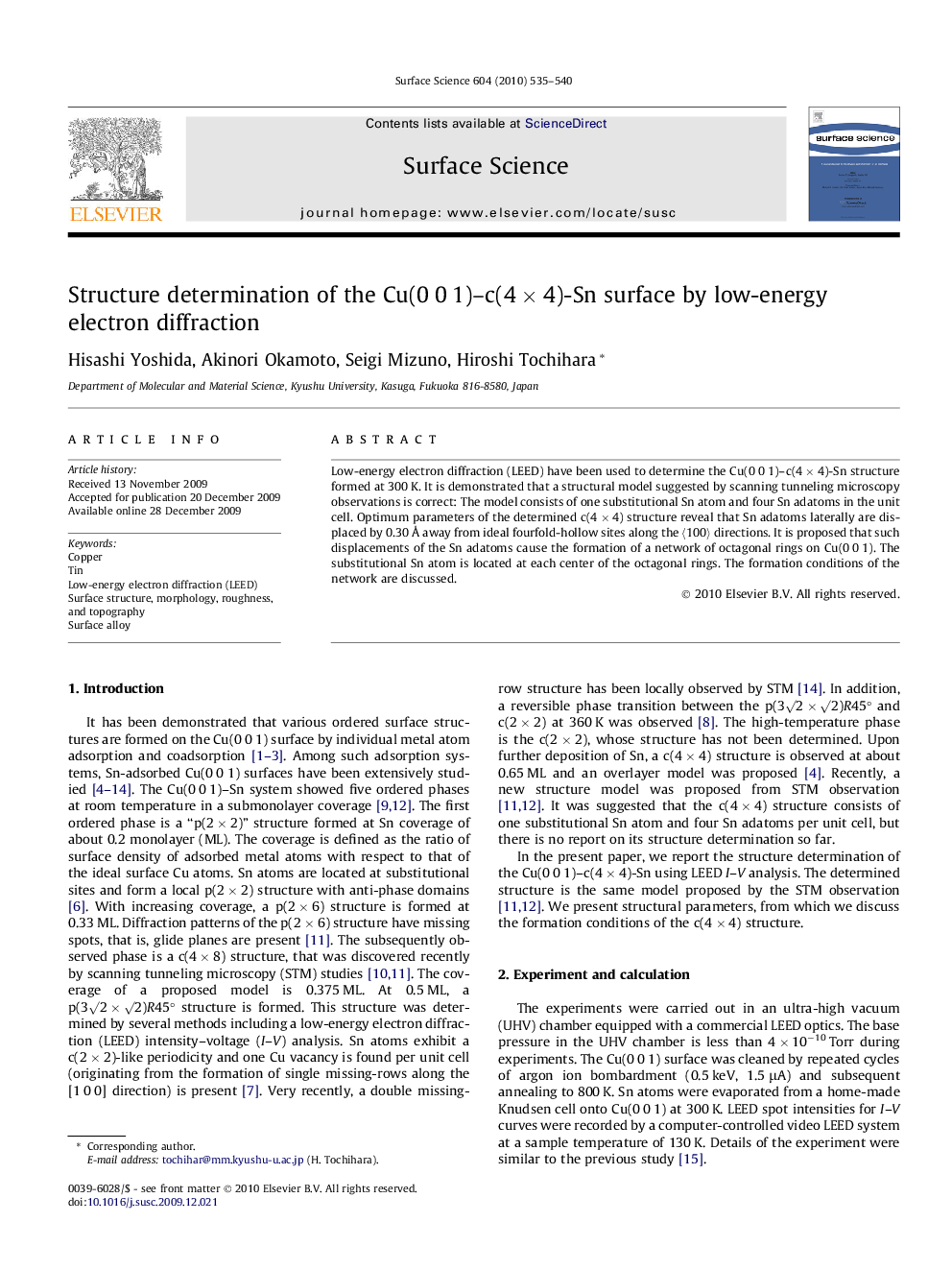| Article ID | Journal | Published Year | Pages | File Type |
|---|---|---|---|---|
| 5423977 | Surface Science | 2010 | 6 Pages |
Abstract
Low-energy electron diffraction (LEED) have been used to determine the Cu(0Â 0Â 1)-c(4Â ÃÂ 4)-Sn structure formed at 300Â K. It is demonstrated that a structural model suggested by scanning tunneling microscopy observations is correct: The model consists of one substitutional Sn atom and four Sn adatoms in the unit cell. Optimum parameters of the determined c(4Â ÃÂ 4) structure reveal that Sn adatoms laterally are displaced by 0.30Â Ã
away from ideal fourfold-hollow sites along the ã100ã directions. It is proposed that such displacements of the Sn adatoms cause the formation of a network of octagonal rings on Cu(0Â 0Â 1). The substitutional Sn atom is located at each center of the octagonal rings. The formation conditions of the network are discussed.
Keywords
Related Topics
Physical Sciences and Engineering
Chemistry
Physical and Theoretical Chemistry
Authors
Hisashi Yoshida, Akinori Okamoto, Seigi Mizuno, Hiroshi Tochihara,
